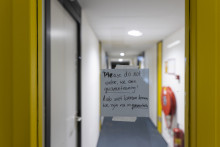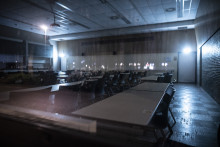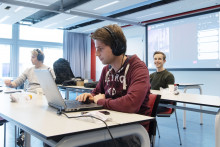Universities and universities of applied sciences have been putting their shoulders to the wheel since March to provide students with remote education. Despite their efforts, it appeared to be unavoidable that some students would fall behind in their studies as a result of the coronavirus measures.
ResearchNed was commissioned by ISO to map the exact extent of the damage. At the beginning of June, the research institute interviewed close to 11,000 students about their study progress and compared these figures to the results of the 2018 national student monitor.
The number of students that have fallen behind in their studies has increased by 7 percent points compared to two years ago. Calculated for the total number of students in the Netherlands, this amounts to an additional 54,000 students with a study delay.
Half of these students feel that the coronavirus crisis had a damaging impact on their study progress, as classes were cancelled, internships were discontinued, and lab and other practical education became impossible. Almost a third say they have obtained fewer study credits (ECTS).
The greatest increase in study delays can be observed in higher professional education. The number of students at universities of applied sciences with a ‘slight’ study delay rose by 10 percent points; from 28 percent in 2018 to 38 percent in 2020. In comparison, the share of university students with a study delay rose by ‘just’ 6 percent points. One explanation for this discrepancy can be that students of universities of applied sciences usually have to do more practical work and are often required to do internships.
Priority
ISO is very worried and is appealing to institutions to open up their study facilities as quickly as possible. According to the student organisation, it would help if students were allowed to use public transport more often, so more classes can be given on campus or other locations again.
‘This is only possible if the government makes education a priority’, says chairman Kees Gillesse. ‘It doesn’t help if we can only schedule classes and lectures between 11:00 and 15:00 and after 20:00.’
Not here to stay
The survey shows that sixty percent of students are happy with the way their university or university of applied sciences organised education during the crisis. However, this does not automatically mean that they believe online education is here to stay; around three quarters say that the quality of this type of education is not up to the usual standard.
ISO thinks that it is strange that they had to commission this survey themselves. ‘These figures should be investigated by the Ministry, universities and universities of applied sciences themselves, in order to make proper policy’, according to Gillesse. ‘Reacting to what’s in front of you is not the right approach. You need to want to get to the bottom of things.’







